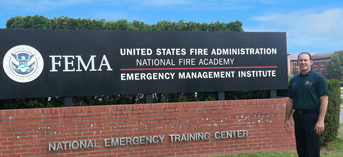About Us
About Us
Preparative Consulting offers comprehensive Public Safety and Emergency Management consulting services. Our clients include Federal, State, and local government agencies, special districts, non-governmental organizations, educational institutions, and private organizations. Preparative Consulting provides a host of public safety and emergency management and preparedness planning, organizing, equipping, training, exercising, and evaluating services. Preparative Consulting has provided professional public safety and emergency management training throughout the state and what sets us apart is the experience, knowledge, and professionalism of our instructors.
Preparative Consulting takes pride in the fact that all our instructors are current in-service or retired professionals who are currently active in public safety, health and human services, or emergency management response, recovery, and mitigation activities. Many serve on statewide boards and committees establishing best practices and standards. Some have and currently provide domestic and international response and recovery experience. But, most of all, our instructors do so because of a fundamental desire to give back to the community and profession to make it better and to mentor others in their field.
FEDERAL AND STATE TRAINING MANDATES
LEVELS OF RESPONSIBILITY DEFINED
- All Incident Personnel: All incident personnel, except MAC Group members
- Provides foundational knowledge to non-supervisory incident personnel to understand where they fit in the bigger incident structure
- Incident Personnel with Supervisory Responsibilities: Front line supervisors, middle managers, incident personnel with authority or personnel working toward supervisory positions
- Provides additional background on external incident management systems for personnel that may have responsibility for establishing the initial incident command for an incident
- Incident Personnel Designated as Leaders/Supervisors: Command Staff, General Staff, EOC managers/directors
- Courses designed for leaders to enhance knowledge and increase their comfort using NIMS structures and processes
Download PDF NIMS Training Core Curriculum Handout Preparative 12_2019
TRAINING COURSES
IS-100, Introduction to the Incident Command System, (ICS 100) – This course introduces ICS and provides the foundation for higher-level ICS training.IS-700, An Introduction to the National Incident Management System – This course introduces NIMS concepts and principles.
IS-29/G0289, Public Information Officer Awareness or IS-702, NIMS Public Information Systems – These courses provide introductory information for JIS personnel. Students take one of these courses based on direction from their AHJ.
IS-800, National Response Framework, An Introduction – This course introduces participants to the concepts and principles of the National Response Framework (NRF).
IS-200, Basic ICS for Initial Response– This course enables personnel to operate efficiently within the ICS during an incident or event.
* FEMA recommends that personnel in Mid-Level EOC category complete IS-2200 instead of IS-200.
IS-2200, Basic EOC Functions – This course prepares incident personnel working in an EOC to understand the role and functions of an EOC during incident response and the transition to recovery.
G0290, Public Information Officer – Basic – This course prepares participants to function as a PIO.
E/L/G191, Emergency Operations Center/Incident Command System Interface – This course reviews ICS and EOC responsibilities and functions.
G0290, Public Information Officer – Basic – This course prepares participants to function as a PIO.
E/L/G0300, Intermediate Incident Command System for Expanding Incidents (ICS-300) – This course provides training and resources for personnel who require advanced ICS knowledge.
• FEMA recommends that students take the two-day classroom version of ICS-200 prior to attending ICS-300 to ensure they have the foundational knowledge necessary to be successful in ICS-300.
E/L/G0400, Advanced Incident Command System for Command and General Staff (ICS-400) – Complex Incidents – This course provides training in managing large, complex incidents or events.
FEMA recommends that students not take ICS-400 immediately following ICS-300. Students should take ICS-400 after a sufficient interval of time has passed, in which the student has gained additional ICS experience.
E/L/G2300, Intermediate EOC Functions – This course describes the role, design, and function of EOCs and their relationship as components of a multiagency coordination system.
G0402/ICS-402, NIMS/ICS Overview for Senior Officials – This course provides an orientation to NIMS and ICS for senior officials.
Briefing from the emergency management director – MAC Group members should meet with their emergency management director to understand the jurisdiction’s threats and hazards, as well as their role in emergency response.
Advanced Training: This training is above and beyond what is necessary for FEMA preparedness grant eligibility. Students participating in these advanced courses will broaden their understanding of emergency management concepts:
E/L0952, NIMS ICS All-Hazards Public Information Officer – This course focuses on developing a strong set of core PIO skills.
O-0305: National Fire Academy (NFA) All-Hazards Incident Management Team – This course focuses on the importance of developing and operating as a functional U.S. Fire Administration Type 3 All-Hazards Incident Management Team.
Our Professionals
Our Planning, Training, Exercise Specialists, and Technology professionals are all senior and experienced practitioners with extensive training, knowledge, and real world practical experience in public safety and emergency management.
We pride ourselves in our commitment to giving back to the professions that we have enjoyed and dedicated our careers to for decades.
With hundreds of years of experience among our professionals, we see public safety and emergency management as a calling and that dedication and commitment shows in the quality of our work.
Our Values
Public Safety and Emergency Management is not just a career it is a calling. Our professionals pride themselves in our commitment to giving back to the professions that we have enjoyed and dedicated our careers to for decades.
This dedication and commitment shows in the quality of our work.

